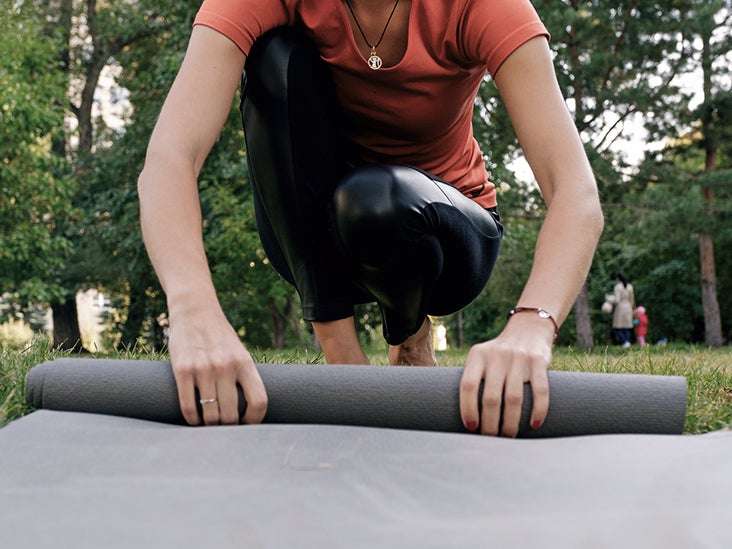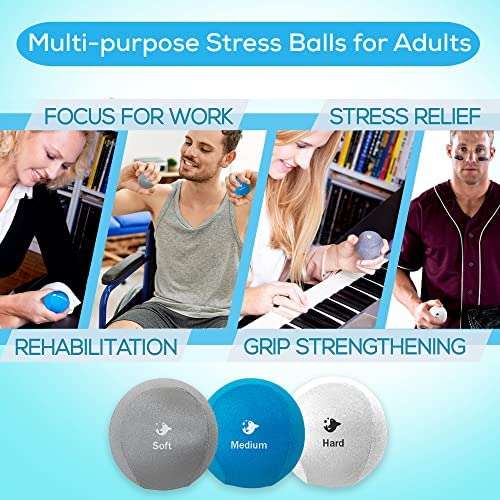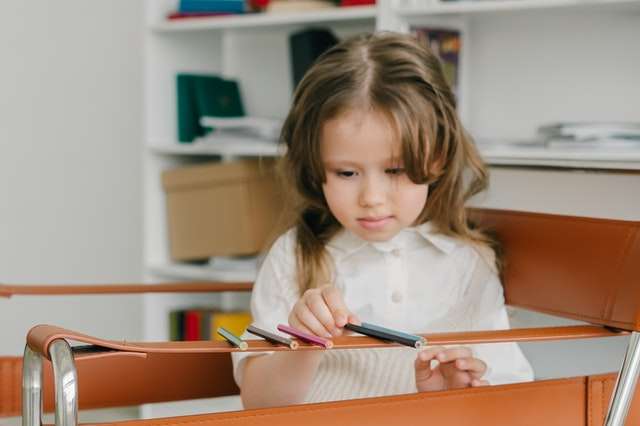Complementary therapies such as yoga, dietary supplements, and animal therapy may help individuals cope with the symptoms of certain mental health disorders and improve their quality of life.
Traditionally, doctors treat conditions such as depression, anxiety, and post-traumatic stress disorder (PTSD) with a combination of medications and psychotherapy. Mental health problems are common, with 21% of adults in the United States experiencing mental illness in 2020. Alternative treatments beyond the standard approaches may help more of these individuals manage their symptoms.
People living with mental health issues may find the following alternative therapies helpful. However, a person should check with their doctor first to ensure these approaches are suitable.
This article looks at various alternative therapies for mental health problems and the benefits and risks.
Yoga

Share on Pinterest
Danil Nevsky/Stocksy
Yoga is a physical, mental, and spiritual practice that began in ancient India and consists of a series of movements and physical poses. As yoga focuses the mind, doctors may recommend it for people living with depression, schizophrenia, PTSD, and attention deficit hyperactivity disorder (ADHD).
Yoga is generally safe, with few risks besides fatigue and breathlessness, although this may depend on an individual’s fitness level. Possible benefits of yoga include:
- increased flexibility
- better balance
- lower stress
- enhanced quality of life
- better body weight maintenance
- improved immunity
High quality studies exploring the value of yoga as a therapy for mental health problems are lacking. Some studies offer moderate evidence of the beneficial effects of yoga compared with regular care.
However, the benefits of yoga appear limited compared to those of breathing techniques, progressive muscle relaxation, and aerobic exercise. That said, doctors may consider it a worthy complementary treatment for individuals with depressive disorders.
Learn more about the health benefits of yoga here.
Cranial electrotherapy stimulation (CES)
CES uses a small electrical device to stimulate the brain with a current below 4 milliamps, which a person cannot feel.
The Food and Drug Administration (FDA) recognizes CES as a class III device that people can use to treat depression, anxiety, and sleep disorders. However, experts are unsure how CES works on the body. One theory is that the electrical current increases serotonin, dopamine, endorphins, and other neurotransmitters, which helps stabilize emotions.
People require a prescription for a CES device, but they can use it at home without a doctor’s supervision alongside their other treatments.
Side effects are rare and typically mild, although pregnant individuals may need to avoid using the device. Also, people with bipolar disorder should use CES with caution, as it could worsen their condition.
Experts consider CES promising but not proven. However, as the device has no drug interactions and minimal side effects, CES is a reasonable option if an individual’s symptoms do not respond to other treatments.
Kava kava
Kava, also known as kava kava or Piper methysticum, is a plant native to the islands of the Western Pacific, where people have used it in traditional medicine for centuries. It is popular in the United States, with around 1% of the adult population using kava to reduce stress, anxiety, and inflammation.
This plant extract may help people with mild to moderate anxiety disorders, and using kava for anxiety in the short term could be effective. Some research indicates that kava is superior to a placebo and recommended to treat anxiety. It may be a suitable alternative to antidepressants in individuals with mild to moderate anxiety.
Additionally, kava may help with memory, sleep, and substance use disorders. Addiction rehabilitation programs in New Zealand have used kava with a 90% success rate.
However, there are reports of liver toxicity and side effects such as:
- headache
- fatigue
- tremors
- restlessness
Therefore, people with liver disease or those taking medications metabolized by the liver should ask their doctor’s advice before beginning treatment with kava.
Learn more about kava here.
Animal therapy
Professionals may use dogs, horses, and other animals to help individuals with mental health issues. Some research suggests that animal-assisted therapy can reduce emotional and psychiatric symptoms, such as anxiety and depression.
Examples of animal therapy include equine-assisted psychotherapy (EAP). This horse-based therapy aims to improve people’s emotions and behaviors by teaching them to care for and ride horses. As prey animals, horses are highly vigilant and sensitive to people’s emotions.
Therapy sessions harness the horses’ natural sensitivities. Participants must maintain self-awareness and use the horse’s behavior for feedback as they focus on building a connection based on mutual understanding.
Although rigorous scientific proof is scarce, some small studies show that equine therapy may ease anxiety, depression, and impulsiveness.
Allergies, infections, and animal-related accidents are some of the risks of animal therapy. However, simple hygiene protocols minimize the likelihood, and evidence suggests the benefits outweigh the risks.
Learn more about animal therapy here.
S-adenosyl methionine
More commonly called SAMe, this naturally occurring chemical resides in every cell of the body and is critical for more than 200 metabolic pathways.
SAMe is a prescription medication for depression in some European countries, and in the United States, people can purchase it without a prescription. People can use SAMe alone or alongside other antidepressant medications.
It appears beneficial as a depression treatment, works rapidly, and does not cause weight gain, sexual dysfunction, or sedation like some other prescription antidepressants. In addition, older adults and those on medications that compromise liver function tolerate SAMe better than other antidepressants. Therefore, some experts believe it should be the alternative medicine of choice.
However, in common with other activating antidepressants, SAMe can worsen anxiety and panic. Therefore, if individuals have signs of mania or bipolar disorder, SAMe may be unsuitable or require the simultaneous use of mood-stabilizing drugs.
Learn more about natural antidepressants here.
There are also several creative therapies that people with mental health conditions may benefit from. Learn about them here.
Summary
Complementary and alternative therapies for mental health problems include yoga, electrical stimulation, and dietary supplements, such as omega-3s and kava. These approaches may increase feelings of well-being, reduce anxiety, ease symptoms of depression, and aid relaxation.
Doctors may recommend these therapies for people who have no symptom relief using traditional medications or psychotherapy. They may suggest that people try them alongside their usual medications or as a replacement for them.
Although there is some evidence to support the benefits of these therapies for mental health problems, such as anxiety and depression, research is limited and often of low quality. As a result, many aspects remain unclear, and further, large-scale studies would help determine the true benefit of these alternative therapies.
Before trying alternative therapies for mental health problems, an individual should first discuss them with their doctor to see if they are suitable options.
Homeopathy
Homeopathy is based on the idea that a substance that causes certain symptoms can also help to reduce those symptoms. Substances are watered down and shaken. Homeopathy practitioners believe that the substance will be more effective to treat symptoms if it is watered down by a large amount.
Organisations such as the Faculty of Homeopathy and the Society of Homeopaths say that homeopathy is effective. They include evidence on their websites.
But the NHS say:
- there’s been lots of investigations into how effective homeopathy is, and
- there’s no good-quality evidence that it’s effective as a treatment for any health condition.
Homeopathy isn’t widely available on the NHS. In 2017, NHS England recommended that GPs and other prescribers should stop providing it.
Hypnotherapy
Hypnotherapy involves a therapist guiding you into a deeply relaxed or trance like state.
Before therapy begins you will agree a goal you want to achieve, and the therapist will make suggestions while you’re hypnotised to help this happen.
You should be fully in control while hypnotised and can bring yourself out of hypnosis if you need to.
It’s important you don’t use this therapy if you:
- experience psychosis, or
- live with some types of personality disorder.
It can make these conditions worse.
If you live with a personality disorder check with your GP first.
Hypnotherapy isn’t usually available on the NHS. But you can find out if it’s available from them in your area by asking your GP.
When looking for a private therapist it’s important you choose someone who’s registered with a professional body. The body should be accredited by the Professional Standards Authority. You can expect to pay £50 upwards to see a hypnotherapist privately.
You can read more about hypnotherapy from the NHS here:
www.nhs.uk/conditions/hypnotherapy
Light therapy
Light therapy has been found by some people to help if you experience seasonal affective disorder (SAD). Although NICE guidelines say it’s unclear if it works.
Light therapy involves the users exposing themselves to light through a light box or lamp. The light source replaces the light that the user doesn’t get in the winter months.
Light therapy is thought to work by:
- increasing the production of serotonin, a feel-good hormone, and
- decreasing the production of melatonin, a hormone that encourages sleep.
Most people can use light therapy without suffering any harm. But it may not be suitable if you’re:
- taking St John’s wort,
- taking certain antibiotics or antipsychotics, or
- have an eye condition or eye damage that makes you sensitive to light.
It’s important to use a light box that is medically approved for SAD treatment. The box or lamp should also be produced by a fully certified manufacturer.
You can read more about treatment for seasonal affective disorder from the NHS here: www.nhs.uk/mental-health/conditions/seasonal-affective-disorder-sad/treatment
Massage
A massage therapist will use their hands to rub your body to help get rid of tension and help you to relax. There are different types of massage, including the following.
- Swedish massage. Using long kneading strokes, rhythmic light tapping strokes, and movement of the joints to relax muscles and relieve tension.
- Shiatsu massage. Pressure is put on certain points to help balance your energy.
Mindfulness and meditation
Mindfulness is a type of meditation. It is when you focus on your mind and body. It is a way of paying attention to the present moment.
An example of mindfulness would be to focus on your breathing. Think about how it feels when you breathe in and out.
When you practice meditation or mindfulness you learn to be more aware of your thoughts and feelings. Once you are more aware of your thoughts and feelings, you can learn to deal with them better.
Mindfulness-based cognitive therapy (MBCT) is a combination of mindfulness and cognitive behavioural therapy (CBT).
The National Institute of Health and Care Excellence (NICE) recommends MBCT to help people with a history of depression.
A course of MBCT should last for 8 weeks. You will usually have MBCT in a group. Each session is 2 hours long. You should have 4 follow-up sessions in 12 months after the end of your therapy.
You can also get mindfulness courses through:
- self-help guides,
- books,
- mobile apps,
- podcasts, or
- YouTube videos.
There may also be classes in your local area.
You can get more information about mindfulness here:
www.mindful.org/meditation/mindfulness-getting-started/
See our webpage on Talking therapies for more information.
Spiritual and energy healing
Spiritual or energy healers believe that energy in your body affects your mental and physical health.
Reiki is a well-known energy healing therapy. A therapist puts their hands on, or above, your body in certain places. They believe that they can channel energy into you to help healing. You keep your clothes on while they do this. You can sit or lie down.
There isn’t much research into the effects of Reiki on mental health. But research has shown that it may help with symptoms of depression. It may also help feelings of stress or anxiety and insomnia.
Some people from African, Asian and Caribbean communities use spirit-based indigenous healing practices to help physical and mental health. These practices can include voodoo, shango and orisha. You can read more about them here: www.bacp.co.uk/bacp-journals/therapy-today/2013/july-2013/spirit-based-healing-in-the-black-diaspora
Pet therapy
There’s some evidence to suggest that having a pet may help people who live with mental health conditions.
Pets can provide reliable, close relationships. This could be important if you have limited or difficult relationships with other members of your social circle.
Pets can help you manage feelings through distraction from symptoms and negative experiences.
Pets can also encourage you to be physically active and to get outdoors more. This can be beneficial for mental health.
Yoga
Yoga focuses on breathing techniques, strength, and flexibility to improve your mental and physical wellbeing. There is some evidence that yoga can help to reduce depression and stress.
You may be able to find yoga classes at your local community centre or at your local gym.
You can read more about yoga and find a teacher near you on the following websites:
- Society of Yoga Practitioners: www.tsyp.yoga
- The British Wheel of Yoga: www.bwy.org.uk




